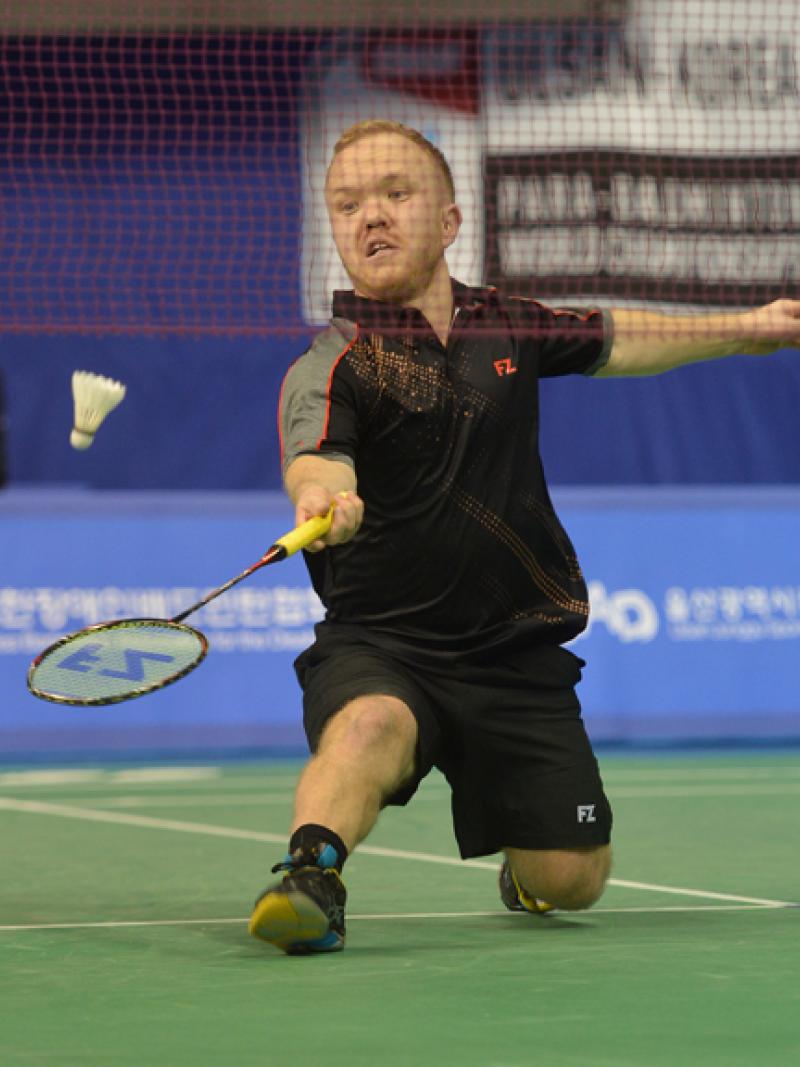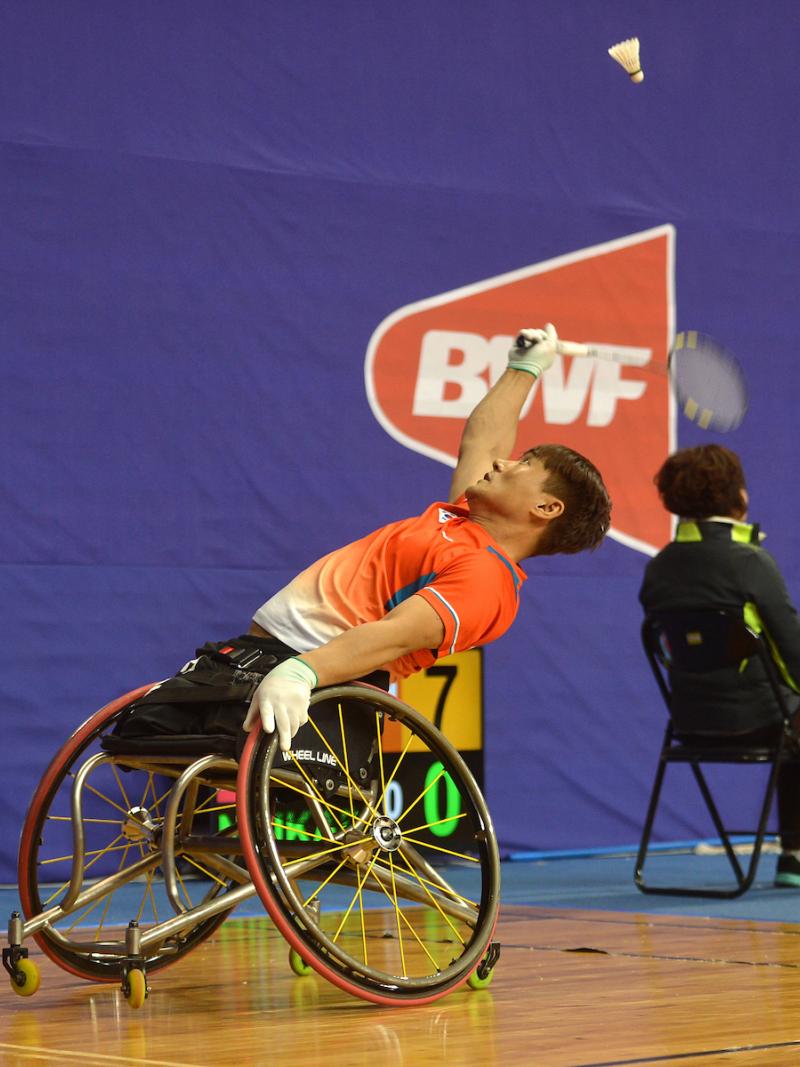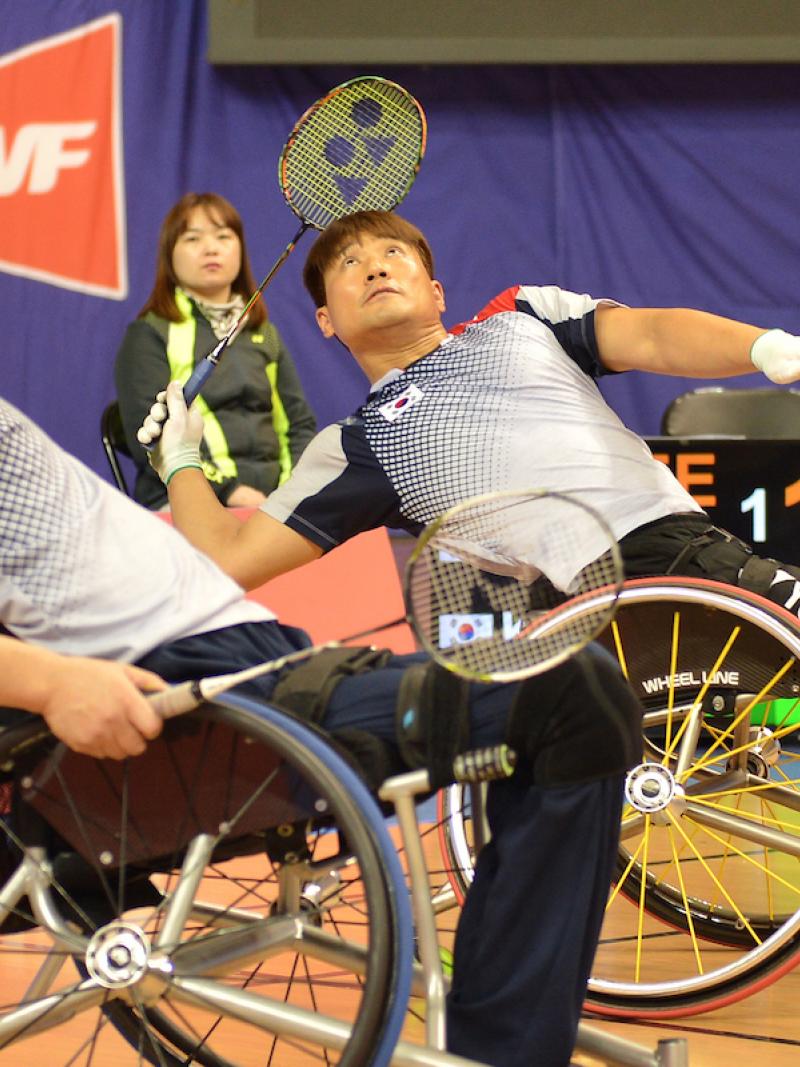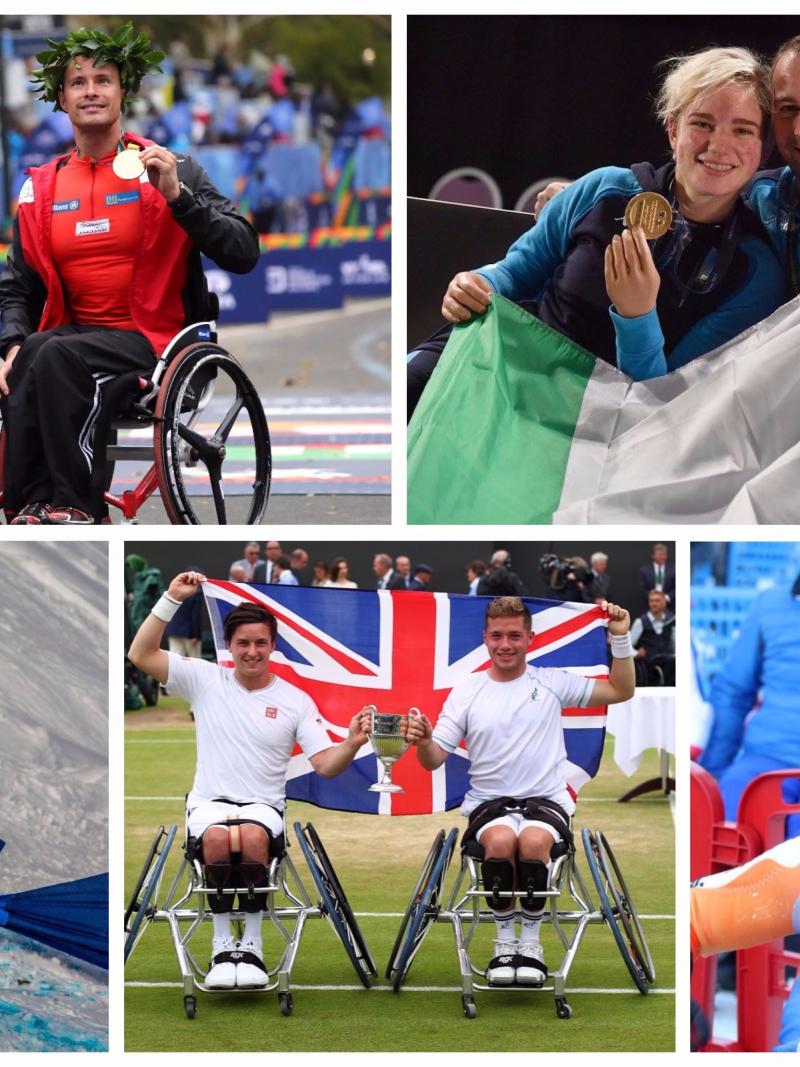5 things learned from Para badminton Worlds
One European country stood out amid Asian-dominated podium 01 Dec 2017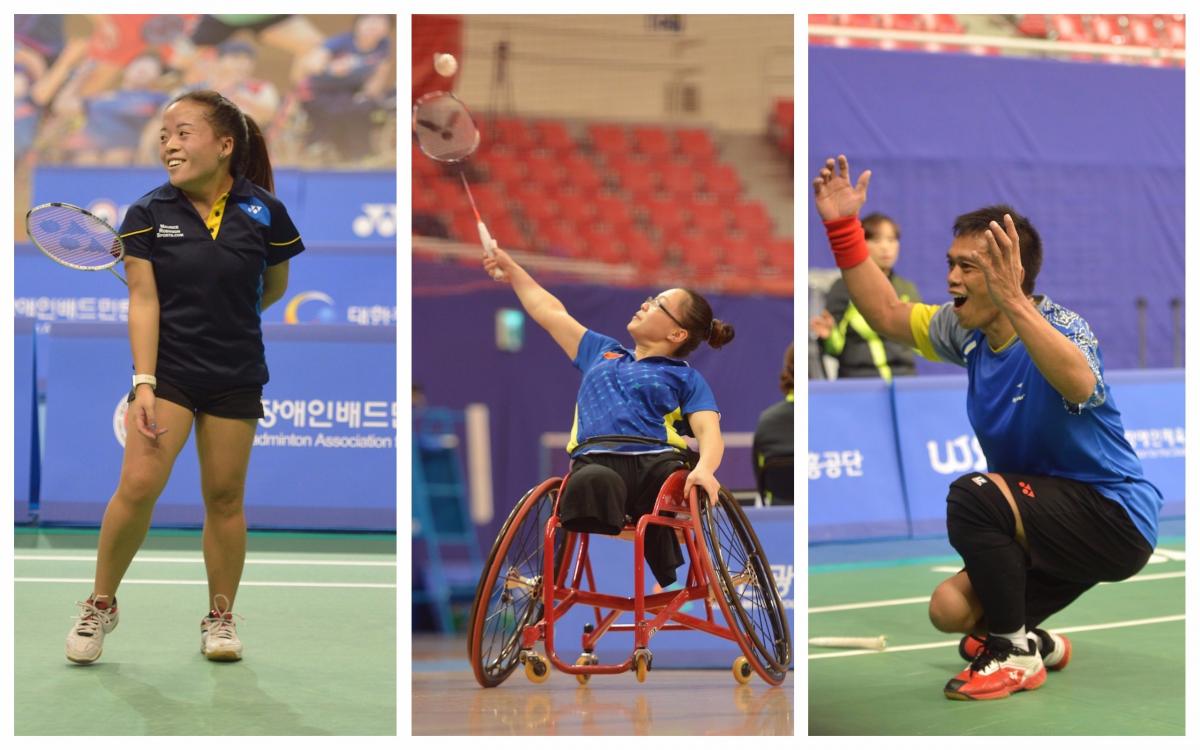
(L-R) Choong, Hongyan and Rukaendi were among the big talking points at the 2017 Worlds
The Badminton World Federation (BWF) Para Badminton World Championships were an important step for athletes ahead of the sport’s Paralympic debut at Tokyo 2020. Here are five takeaways from the competition, which finished on 26 November in Ulsan, South Korea.
1. Asian countries dominate
Of the 22 medal events, 17 were won by Asian athletes, showcasing the region’s strength in the sport, especially ahead of its Paralympic debut at Tokyo 2020. China and Indonesia took home four gold medals apiece. China’s Li Hongyan led China with three medals, two being gold.
2. The surprise
Indonesia’s Ukun Rukaendi delighted his country with double gold and did so with plenty of exciting rallies in his earlier matches in the men’s singles SL 3. Unseeded entering Ulsan, Rukaendi defeated Japan’s third seen Daisuke Fujihara in a 65-minute long match – one of the longest at the Championships. Then in the semi-final, he put on a rally with India’s defending champion Pramod Bhagat and came out on top. In the finals, he outlasted another Indian in Manoj Sarkar in three sets for the title. Rukaendi will not be underestimated by his opponents in the future.
3. South Korea entertain home fans
South Korea had plenty of reason to follow the tournament because of two big names: Sam Seop Lee and Jungjun Kim. Both were top seeds in the men’s singles WH 1 and WH2, respectively, and they both did not disappoint. They successfully defended their singles titles, then teamed up to win the men’s doubles title. The question is whether they can hold that status in less than 1,000 days’ time for Tokyo 2020.
4. Great Britain leading non-Asian teams
In the midst of the Asian-filled podiums, Great Britain was able to counter their dominance by taking four gold medals. Rachel Choong successfully retained her title in the women’s singles SS 6. The men’s singles SS 6 was an all-British final, with Jack Shephard upsetting top seed Krysten Coombs. After hosting the 2015 World Championships in Stoke Mandeville, Great Britain is expected to build upon its successes toward Tokyo 2020.
5. Men’s singles SL 4 rivalry
The category saw a repeat of the finals from 2015. But this time the result was different.
France’s No. 1 seed Lucas Mazur dethroned his Indian rival Tarun Tarun to win the gold medal. The two could have more meetings down the road. But do not count Malaysia’s Bakri Omar, the No. 2 seed, out of the mix.





